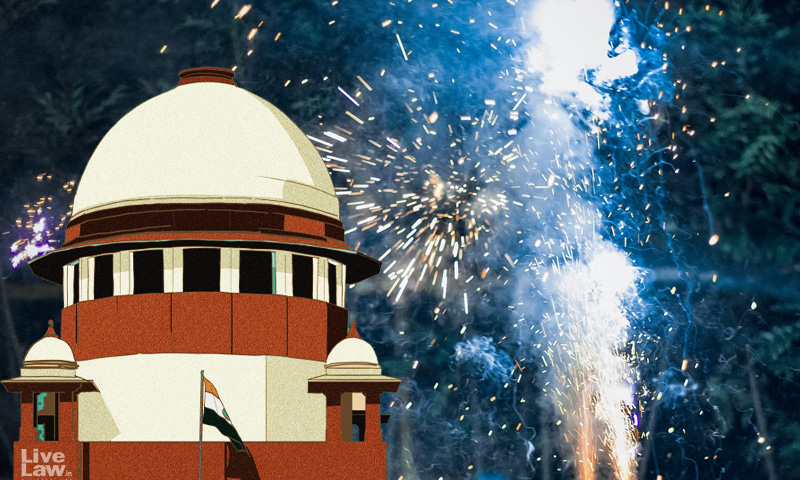 |
|
The Supreme Court of India has expressed serious concern over the Delhi government's failure to effectively enforce the ban on firecrackers during the recent Diwali festival. The Court directed the Delhi government and the Delhi Police Commissioner to submit detailed affidavits outlining the steps taken to implement the ban and the measures planned for better enforcement next year. This directive comes in response to a report by the Centre for Science and Environment (CSE) indicating that air pollution levels in Delhi reached an all-time high during Diwali, exceeding those of the previous two years.
The Court, hearing the MC Mehta case concerning air pollution in the Delhi NCR region, highlighted the detrimental effects of non-implementation of the ban. Justice Abhay Oka and Justice Augustine George Masih, presiding over the case, observed that the ban was hardly enforced and its failure is evident from the alarming rise in pollution levels. The Court expressed its intention to explore extending the ban beyond Diwali to other festive occasions, emphasizing the need for a comprehensive approach to mitigate pollution during these periods.
Justice Oka raised concerns regarding the lack of a robust mechanism for enforcing the ban. He inquired about the penal provisions available under the Air Pollution Act and emphasized the need for effective measures, including potential premises sealing for those selling firecrackers. The Court also stressed the importance of public awareness campaigns to educate citizens about the harmful impacts of firecrackers and encourage compliance with the ban. Amicus curiae Aparajita Singh presented data from the CSE report, highlighting the significant increase in farm fires during Diwali, contributing to the surge in pollution levels.
Beyond the firecracker ban, the Court directed the Delhi government to provide details about instances of farm fires within the city limits. Similarly, the Haryana and Punjab governments were instructed to submit affidavits reporting the number of stubble burning incidents during the last ten days of October. The Court reiterated its concern over the issue of large-scale waste burning and highlighted the Delhi government's previous affidavit on October 30 addressing this matter. The Court scheduled November 14 for further review of compliance actions taken by Delhi and the NCR states.
The Court also directed the Union government to take a decision regarding Punjab's proposal for funds to assist small farmers, including the provision of tractors with drivers. The deadline for this decision was extended by one week, with compliance to be reported by November 14. Additionally, the Court inquired about the progress in setting up the necessary machinery under Section 15 of the Environmental Protection Act. The Union counsel informed the Court that draft rules have been prepared and are undergoing translation, with completion expected within two weeks. An updated compliance report is to be filed by November 14.
Furthermore, the Court reviewed the implementation of its December 13, 2023 direction for color-coded stickers on vehicles to indicate fuel type. All NCR states were directed to submit compliance affidavits within one month. The Ministry of Road Transport and Highways (MoRTH) was tasked with conducting a meeting with transport department officials from other states and union territories to assess implementation progress. The Union is required to submit a compliance affidavit regarding this matter.
